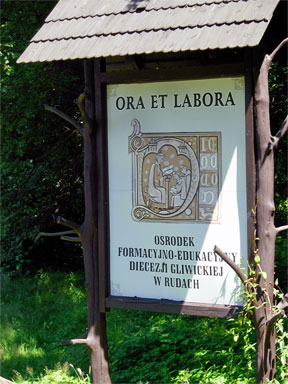« Introduction to Nehemiah | Home | Newsbreak: American Idol Gets a Shot in the Arm »
Work and Prayer in Nehemiah 1
By Mark D. Roberts | Wednesday, September 9, 2009
Part 5 of series: A Theology of Work in Ezra and Nehemiah
Permalink for this post / Permalink for this series
In the Old Testament book of Nehemiah, chapter 1 introduces the main character and sets up the story of the book. Nehemiah is a Jewish man who worked as the cupbearer for the Persian king Artaxerxes. While serving the king in his winter residence at Susa, Nehemiah received a report about the state of his fellow Jews who had returned to Jerusalem from their captivity in Babylon. The report was dire, focusing especially on the vulnerability of the city because its walls had been destroyed.
In response to this intelligence, Nehemiah “sat down and wept.” Then, for says he “mourned, fasted, and prayed to the God of heaven” (1:4). In this prayer Nehemiah confessed God’s covenant faithfulness and the covenant unfaithfulness of the Jews. He asked for God’s help with his plan, yet unexplained, that would require the support of the king (1:11).
Nehemiah 1 introduces his work as cupbearer in the final verse. Thus the chapter leaves to the reader to fill in the blanks concerning this assignment. As I explained in yesterday’s post, the cupbearer was a committed servant to the king and often a trusted adviser. Nehemiah’s work was in support of a pagan king, and would have required full commitment as well as countless hours of service.
Nehemiah 1 also presents Nehemiah as a person of faith, a man of prayer. In fact, his passion for the people of God is powerful enough to lead Nehemiah to risk his life and radically change his career path.
 The introduction of Nehemiah illustrates how work and prayer can be joined in our lives. Surely, Nehemiah became the king’s cupbearer because of his excellence in royal service. Yet this consummate professional was also a man of deep religious conviction. We do not see in Nehemiah a tension between secular employment and devotion to God. Rather, they appear to go hand-in-hand. (Photo: A sign outside of the Benedictine Monastery in Rudy, Poland.)
The introduction of Nehemiah illustrates how work and prayer can be joined in our lives. Surely, Nehemiah became the king’s cupbearer because of his excellence in royal service. Yet this consummate professional was also a man of deep religious conviction. We do not see in Nehemiah a tension between secular employment and devotion to God. Rather, they appear to go hand-in-hand. (Photo: A sign outside of the Benedictine Monastery in Rudy, Poland.)
Nehemiah 1 presents the man Nehemiah as a potential poster child for the Benedictine Order, the motto of which is ora et labora (“prayer and work” in Latin. This, by the way, was apparently not stated by St. Benedict himself, but rather reflects a 19th condensation of Benedict’s emphases.) Nehemiah works and Nehemiah prays. Both are expressions of his covenantal relationship with God. Both are ways Nehemiah lives out his faith. Both will be used by God in his effort to bring restoration to the Jewish people.
Topics: Theology of Work Project |
2 Responses to “Work and Prayer in Nehemiah 1”
Comments
Thanks for your willingness to make a comment. Note: I do not moderate comments before they are posted, though they are automatically screened for profanities, spam, etc., and sometimes the screening program holds comments for moderation even though they're not offensive. I encourage open dialogue and serious disagreement, and am always willing to learn from my mistakes. I will not delete comments unless they are extraordinarily rude or irrelevant to the topic at hand. You do need to login in order to make a comment, because this cuts down on spam. You are free to use a nickname if you wish. Finally, I will eventually read all comments, but I don't have the time to respond to them on a consistent basis because I've got a few other demands on my time, like my "day job," my family, sleep, etc.
You must be logged in to post a comment.















September 9th, 2009 at 6:53 pm
Mark, I have a comment about the following statement:
“We do not see in Nehemiah a tension between secular employment and devotion to God. Rather, they appear to go hand-in-hand.”
What, exactly, is “secular” employment? I know…there is “clerical/religious/church/ministry” work, and there is “secular” work. Hogwash. God calls people to “secular” vocations every day, and those callings are every bid as valid to God’s mission in the world as are callings to the ministry of word and sacrament. All of us together - “secular” and “religious” - are what Jesus called salt and light.
Calvin knew this when he wrote the Institutes, and our Presbyterian polity today upholds equity between clergy and laity. We are, after all, a priesthood of believers, right?
I think you were headed toward this kind of discussion, but I just got impatient. Sorry.
Thanks for the topic!
September 9th, 2009 at 7:28 pm
Ray: You’re right. I should have put “secular” in quotation marks. Good post. Thanks!